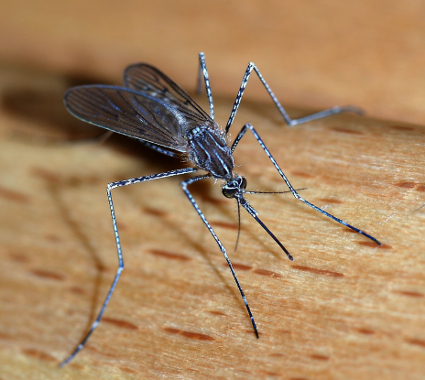Deadly West Nile Virus detected in Brooklyn mosquitoes

Mosquito_by_.jpeg
Potentially deadly West Nile virus has been detected in mosquitoes in the Brooklyn neighborhoods of Dyker Heights, Greenwood Heights, Starrett City and Windsor Terrace, according to the New York City Department of Health.
The agency is urging people over the age of 50 to take extra precautions to prevent mosquito bites. Parents of young children should also take extra care, as should people with compromised immune systems.
Mosquitoes are collected in special traps from over 90 locations — or pools — citywide. Infected mosquitoes were detected on Aug. 3 in eight locations in Brooklyn, according to the city’s Department of Health. These include zip codes 11215, 11232, 11228, 11239, and 11414.